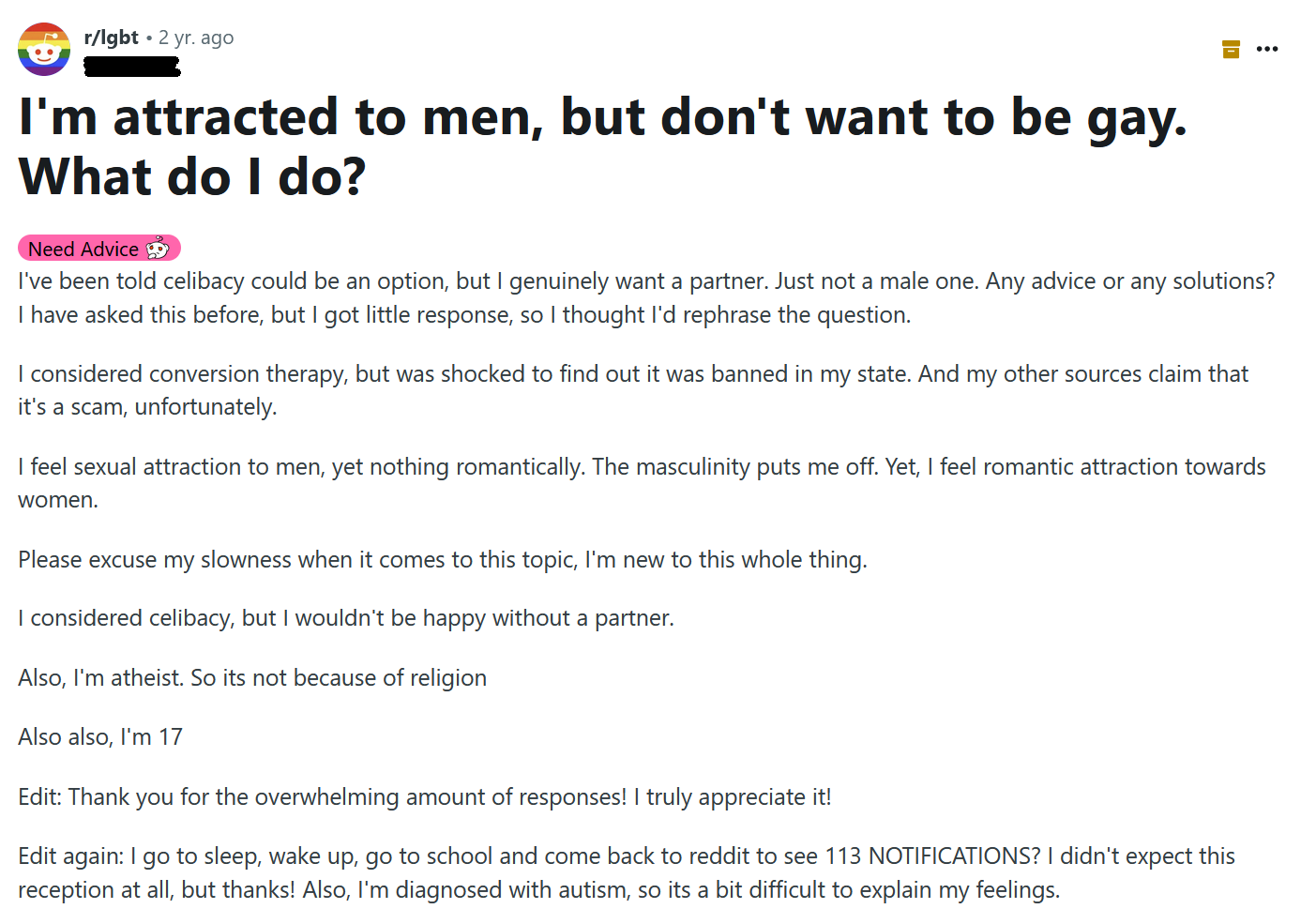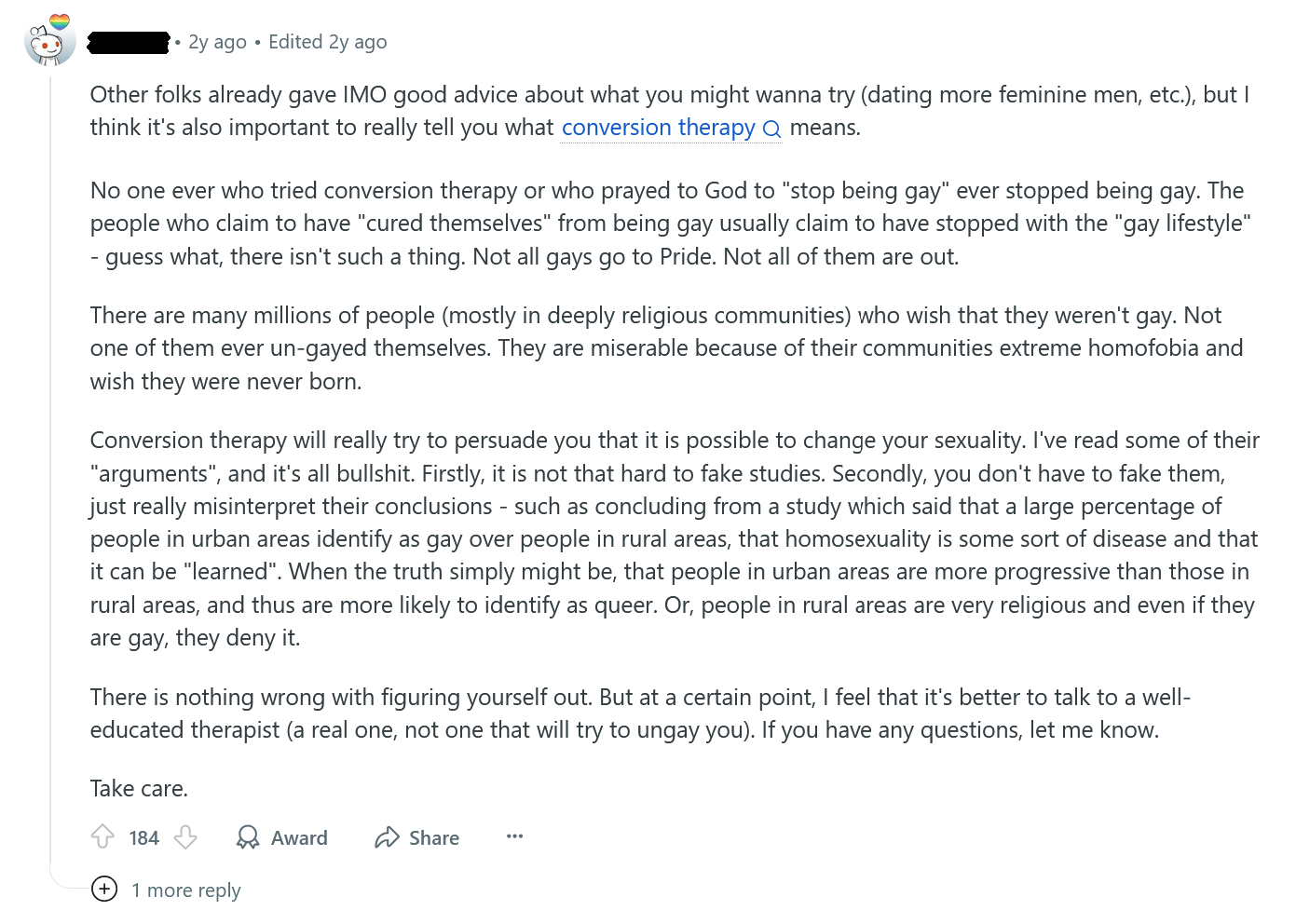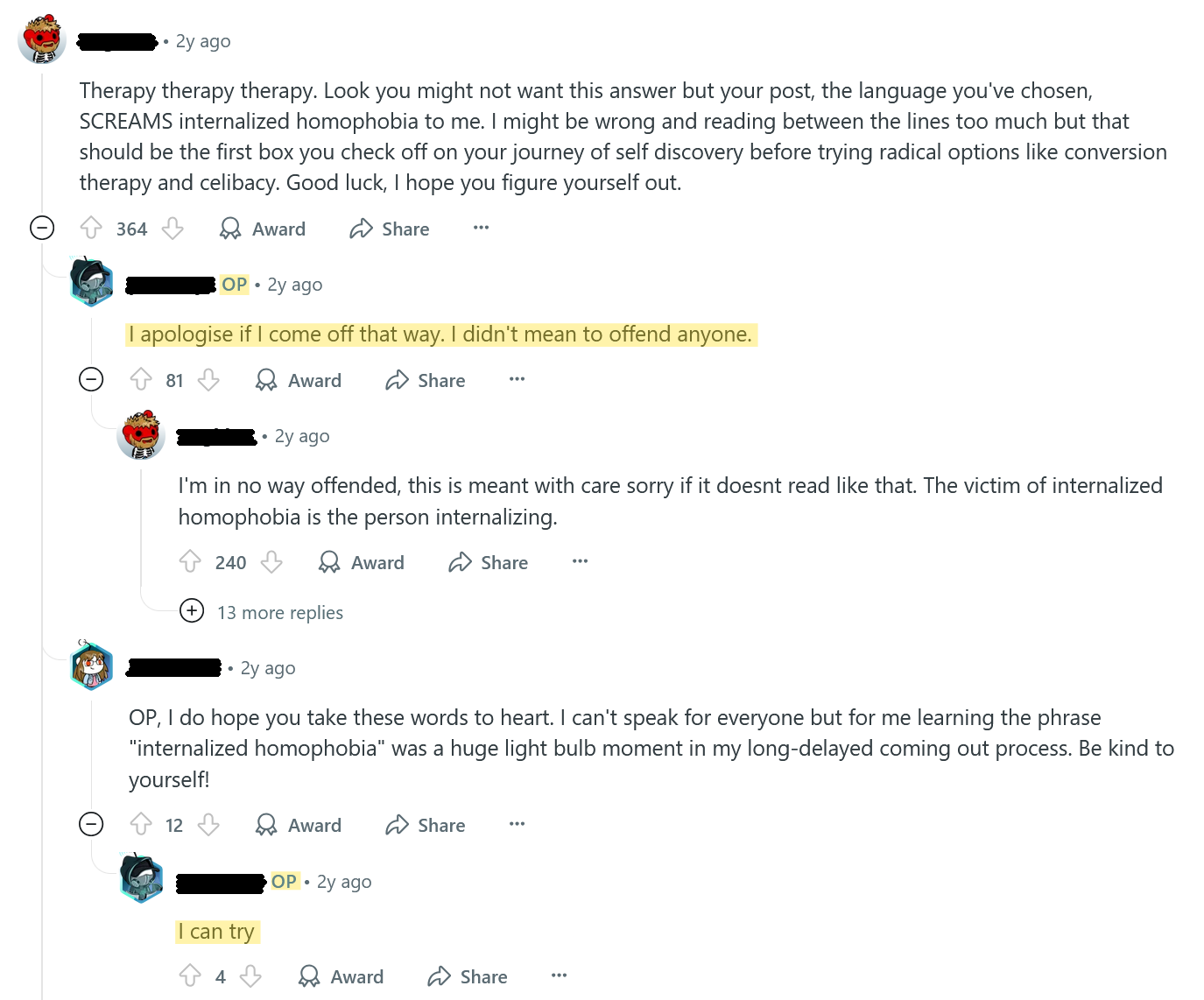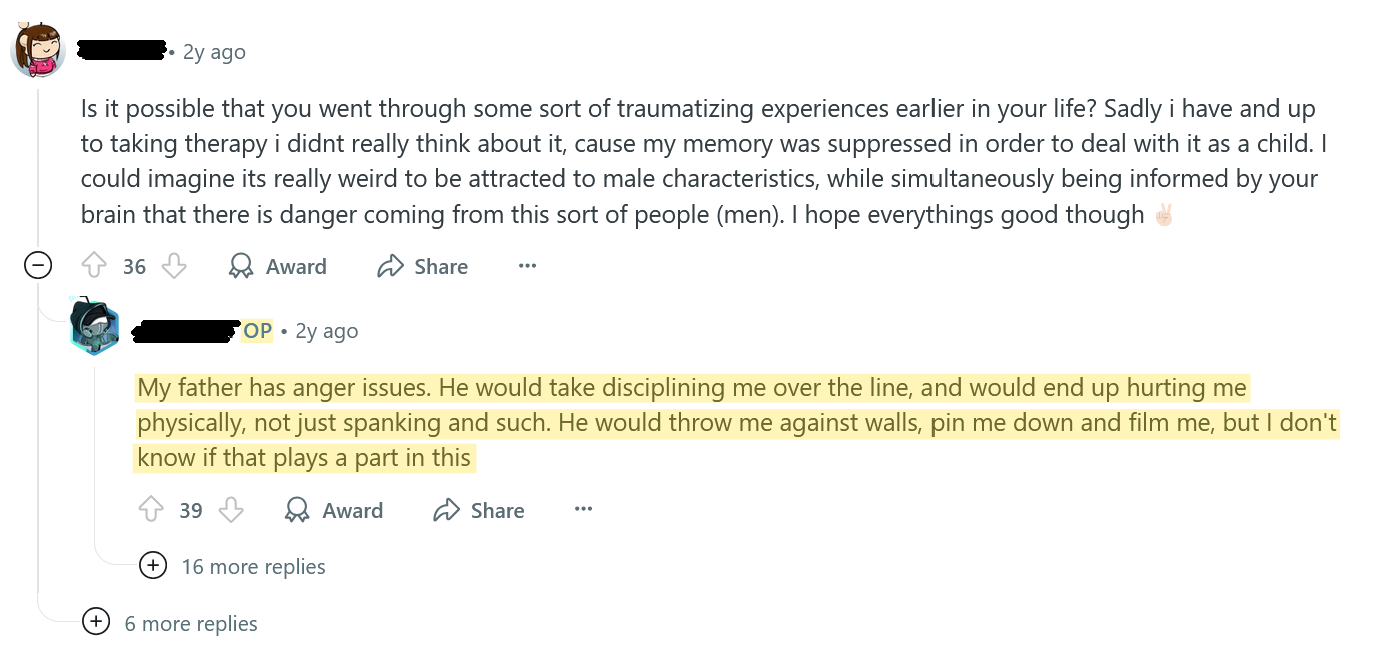I Don't Want to Be Gay
'I'm attracted to men, but don't want to be gay. What do I do?'
The question popped up on an old Reddit thread. It feels familiar. When I was younger, I also wondered the same thing.
But I'm a bit disheartened by the responses. Especially considering the candor of the original poster (OP). I see a lot of myself in what he's written. So I want to address his concern with the care he deserves. Because it is, after all, my concern too.
Here's what he says:

A quick summary. The original poster is a 17-year-old boy diagnosed with autism. He shares that he feels a sexual attraction to men, but is more romantically attracted to women. The OP is looking for advice or solutions. He has considered celibacy but feels like it would not lead to happiness; rather he states that he wants a partner, 'just not a male one'. The OP has also considered 'conversion therapy'. He notes that he's an atheist, and his search is not driven by religion.
The original post garnered significant attention with over 500 comments. Before I share my thoughts, I want to highlight some of the top responses to help frame the discussion.
Commenters overwhelmingly advise against conversion therapy, emphasizing its ineffectiveness and harm, with some calling it 'torture' and 'inhumane.'


Some recommend seeking an LGBT+ affirming therapist to help the OP address his feelings.

Commenters also suggest the original poster may be experiencing internalized homophobia, possibly influenced by his environment or upbringing.

Some might characterize the tone of the responses as generally supportive or empathetic. But this is not my reaction. In fact, it's the opposite.
Many comments seem to fall into three categories. First, they are cautionary – condemning conversion therapy and sexual orientation change efforts. Second, they're patronizing – telling the OP what is or isn't possible, telling him he has 'internalized homophobia' etc. Finally, they're conformist – discounting the OP's values, and affirming an identity he has reservations about, suggesting he watch Heartstopper to help the OP embrace his own feelings etc. For brevity's sake, I won't break down all the comments, but the original thread is archived on Reddit.
These comments might feel dismissive for a 17-year-old boy diagnosed with autism. What they're essentially saying is that there's nothing he can do to but learn to accept his fate. And I can't think of a more bleak outlook.
I feel somewhat infuriated by the responses because they were neither helpful nor understanding. And if I could offer a thought, I'd start by validating the OP's feelings, not labeling them.
A more compassionate response would recognize the challenge of grappling with feelings that are inconsistent with values. And rather than putting limits on how a person might change, I'd gently encourage him to explore where some of these feelings may be coming from in the first place – with the goal of understanding himself first and foremost. I might suggest that perhaps this is best done with a professional who will put his goals first and not with someone who is primarily interested in affirming an identity consistent with their own ideology. In short, I would offer hope without judgement.
And speaking of understanding himself, there was one comment that was actually insightful. It shed some light on how we might help our young friend.

The comment inquires about past trauma. The OP responds that his father has anger issues and describes patterns of physical violence (what we might characterize as child abuse). The OP then states, 'I don't know if it plays a part in this'.
This breaks my heart. Not only for what I imagine has happened in his life, but because he's not being told the truth – even when he's earnestly seeking answers. And if I could speak to him, I'd tell that yes, sometimes the past does influence how we feel. It impacts how we see ourselves and how we interact with the world.
It's experiences like the ones he's describing that need attention. I suspect they are the root cause of his emotional distress. And if left unattended, those attachment wounds can become sexualized. Treatment might require trauma-informed therapy, not conversion therapy. A focus on the sexuality piece is just a focus on a symptom. And focusing on a symptom won't get us very far – whether we affirm the symptom or try to make it go away. True relief will require a deeper dive.
In short, I'd encourage the kid to take heart. He can chart his own course. I'd hope that he tunes in to what he wants and makes efforts to realize his own goals. There are ways to do it. And I'd support him in whatever he decides. But it is a choice – not how you feel – but what you do about it. And best not let others make that decision for you.
Member discussion